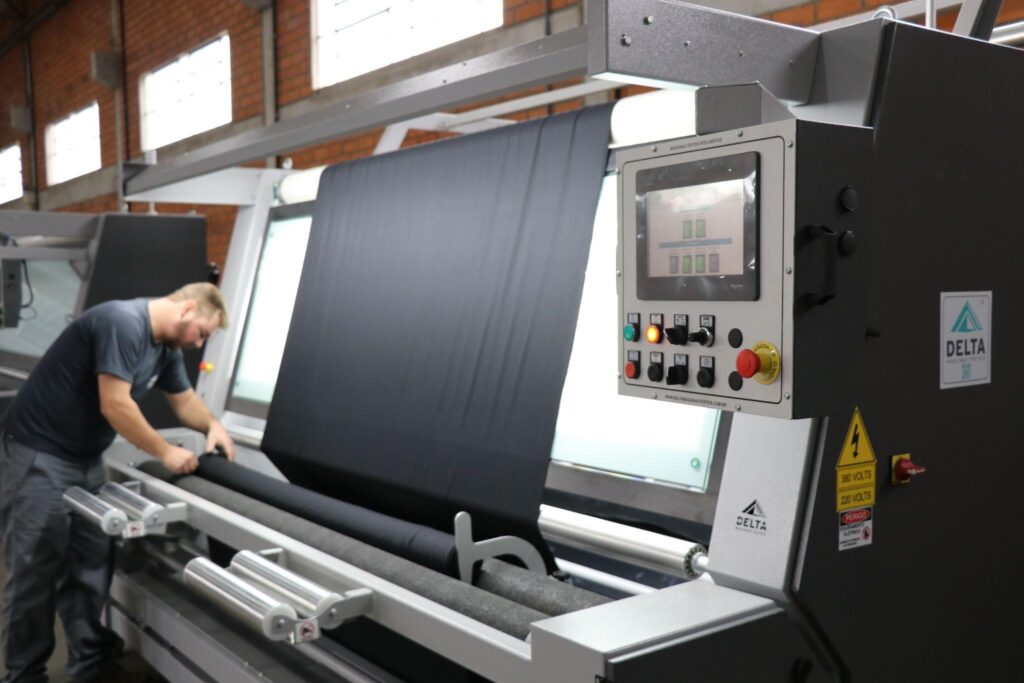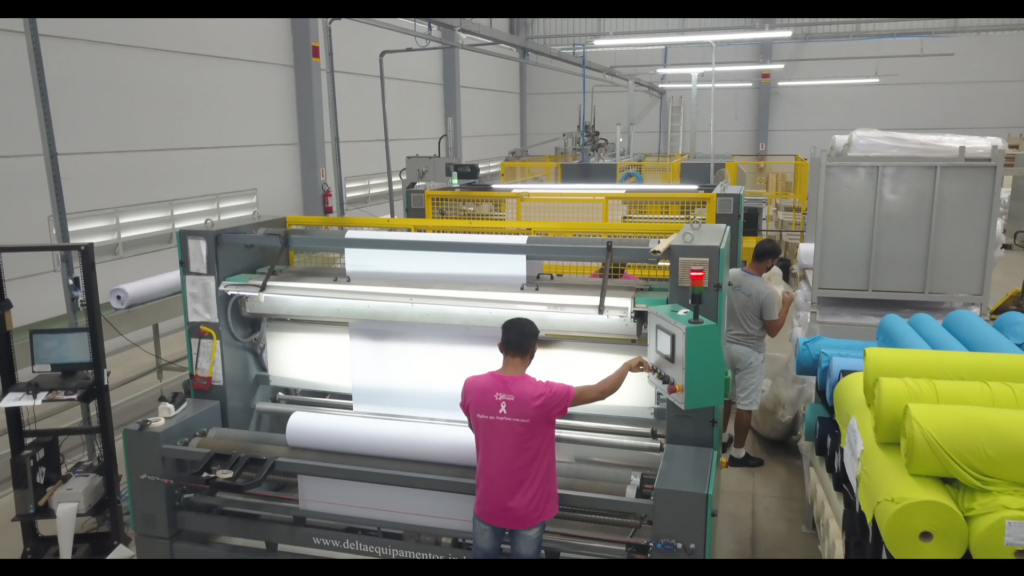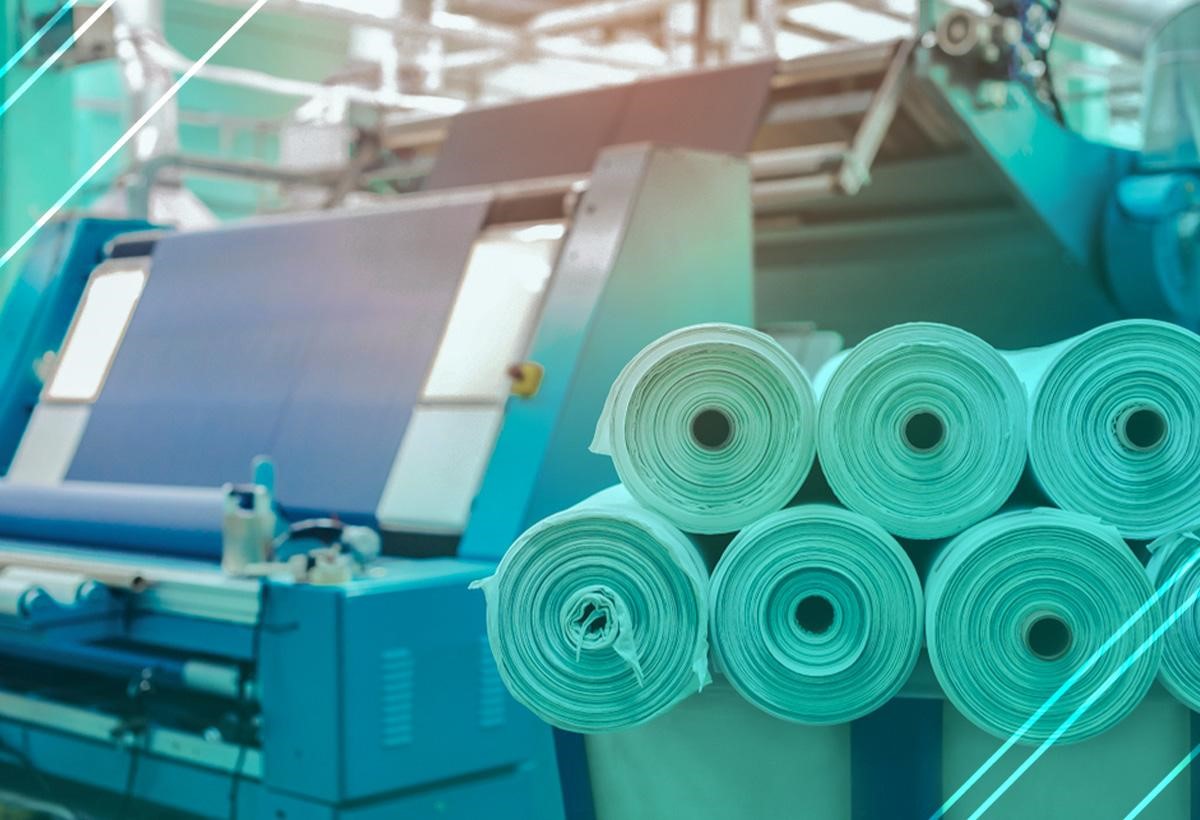To make your process assertive and ensure efficiency, it is necessary to invest in textile technology. There are several innovative solutions that guarantee smarter, more productive and automated steps. Which, consequently, positively impacts the financial health of the business.
If you want to better understand these and other advantages of investing in technology in the industry, read on!
The importance of textile technology
With digital transformations, textile technology has become indispensable to make factories smarter. It was in this process that the concept of industry 4.0 emerged. Although we are already talking about 5.0 today, the previous one is the precursor of a more technological movement.
Technologies in the textile industry are fundamental for implementing solutions that meet the needs of contemporary consumers. For example, according to a survey by Dessault Systèmes, cited by G1, 83% of consumers want products or services to adapt to their needs in an agile way. And more than 25% are willing to pay extra for personalization.
These behavioral changes are requirements of an increasingly modern and innovative contemporary world. With the help of technology there is the possibility of offering what is claimed. This allows for a greater scope for mass customization with the help of production automation, which maintains productivity.
Not only that! Trends in the fashion industry, seasonal changes and the growth of conscious consumption have a direct impact on the textile industry as a whole.
According to the Fios da Moda report, cited by Tecnotêxtil Brasil, circular fashion has been presented as an alternative to textile waste. The study shows that 56.8% of people would recycle their clothes if they knew that they would actually be recycled.
The factors mentioned only reinforce the importance of making technology an ally when monitoring these transformations, in order to stay up to date.
Benefits of technology in the current scenario

Therefore, technological innovation becomes essential for those businesses that want scalability and continuous growth in an increasingly competitive scenario. A survey by the Brazilian Textile Industry Association (Abit) points to some data that demonstrate this statement, such as:
- There are more than 4.5 billion reais invested in the sector;
- More than 1 million tons produced;
- More than 1 million direct employees and 8 million indirect employees;
- More than 24.6 thousand formal production units in the country.
Brazil is a major player in the sector and to remain competitive in this market it is necessary to adopt technologies.
It is worth highlighting that the most used are those that facilitate automation. Thus, the Internet of Things, Big Data, Virtual Reality, 3D Modeling, Artificial Intelligence and Information Technology are just some of the examples. However, they all provide advantages:
- Greater productivity thanks to the reduction of errors and rework;
- Cost reduction by eliminating defects and labor requirements;
- Reduces material waste;
- Offers greater control of information;
- Provides more assertive management;
- Provides more security;
- Enables time optimization thanks to the agility of machines and equipment.
The applications of technologies directly impact the profitability and efficiency of your productions. These tools help to improve products, the quality of deliveries and excellence in all stages of manufacturing.
This makes it possible to standardize processes and routines, meet safety and effectiveness standards and have greater modularization and organization. Furthermore, it ensures more conscious and environmentally responsible production.
How these solutions can be applied
Textile technology can be applied at all stages of production. Whether in the spinning, weaving, finishing, manufacturing stage or those linked to them. However, we have separated some examples to further simplify the benefits generated by these solutions in your industry.
In knitting and finishing

The fabrication and care part of the knitwear is present in the weaving stage. And this is when packaging machines avoid problems in transporting and storing rolls. They are essential to guarantee agility and high quality standards.
The Industry Malharia Brasil invested in innovation with Delta Máquinas Têxteis. By investing in technological equipment, the company began to add value to its monthly production (300 tons) and reduce input costs.
The industry acquired Hydro Sprinkler Stations and Automatic Wrapping Machines to improve its productions. This is because, with the Station, the mesh undergoes a more careful finishing that allows the piece to become malleable, avoiding thread breakage thanks to its softness.
The Wrapping Machine, if aligned with the Stations, offers greater control over weighing records and label application. This generates greater automation and avoids human errors.
When washing samples
Sample washing is part of the manufacturing stage. This is the phase that transforms the raw material into the desired final product. The washers are responsible for the shrink test processes and greater agility in the laboratory response.
With the washing cycle, the percentage of shrinkage and twisting are evaluated, simplifying monitoring of the production process. This technology allows for gains in saving raw materials, water, time, electricity and also guarantees a return on investment.
Several companies rely on Delta’s DWM555 Sample Washer to ensure optimization and productivity. The Urbano Têxtil was experiencing some bottlenecks in process time, energy consumption, raw materials and labor. The company wanted greater standardization of production and assertiveness in the testing phase.
This was a direct reflection of the use of domestic machines to wash and dry products. A process that took around 4 hours, with the DWM555, now takes 15 minutes. Furthermore, this solution reduced raw material consumption by 75% and energy consumption by 12%.
Objeto Brasil also invested in Delta’s DWM55. Thus, the industry reduced the process from 3 hours to 15 minutes with the Sample Washer. Added to this result, the company achieved monthly savings of 15 thousand reais with cost reductions.
In the rest phase
The resting stages are also important procedures in the manufacturing phase. With relaxers, conventional rest is eliminated, providing immediate relaxation.
And Delta relaxers promote greater standardization of the process, carrying out the roll-to-roll procedure. As well as providing important data for programming and the possibility of integration with ERP. They also generate greater profitability, large-scale production, raw material quality and productivity in the wrapping phase, and improve dimensional stability after cutting.
The Supertex is another Delta success story. The Colombian company is responsible for manufacturing and exporting parts to international organizations, such as Adidas. The partnership was born after meeting Delta Máquinas at Colombiatex, an international fair for the sector.
The rest process, before the implementation of Delta relaxers, took 48 hours. After using the machines, this step started to be carried out in just 5 minutes
This commitment to innovation resulted in savings of 50% in time and a reduction in labor. Furthermore, the quality of the product surpassed that of the previous manual process.
Invest in technological innovation
We hope that the importance of textile technology for achieving competitiveness, productivity, quality and cost reduction has become clear. Technology aligned with the production process will be a great differentiator for your company.
If you want to better understand how you can invest in innovation with the help of expert partners, download our guide for free.



